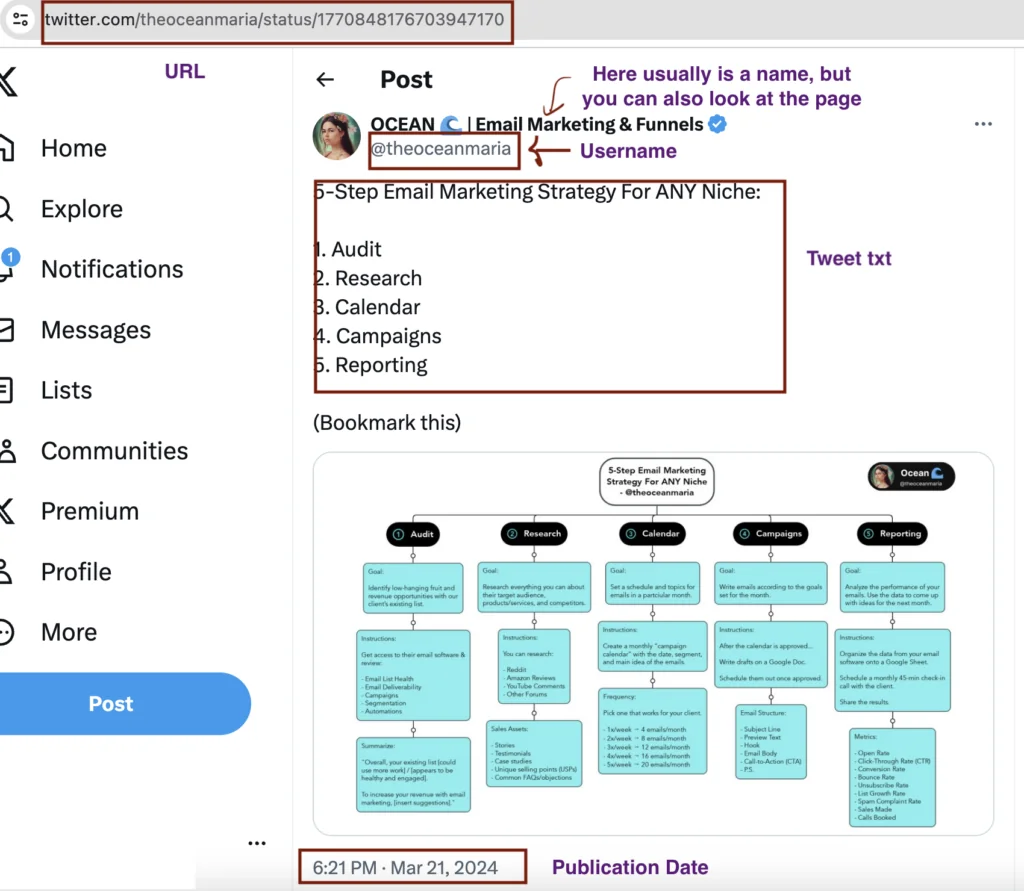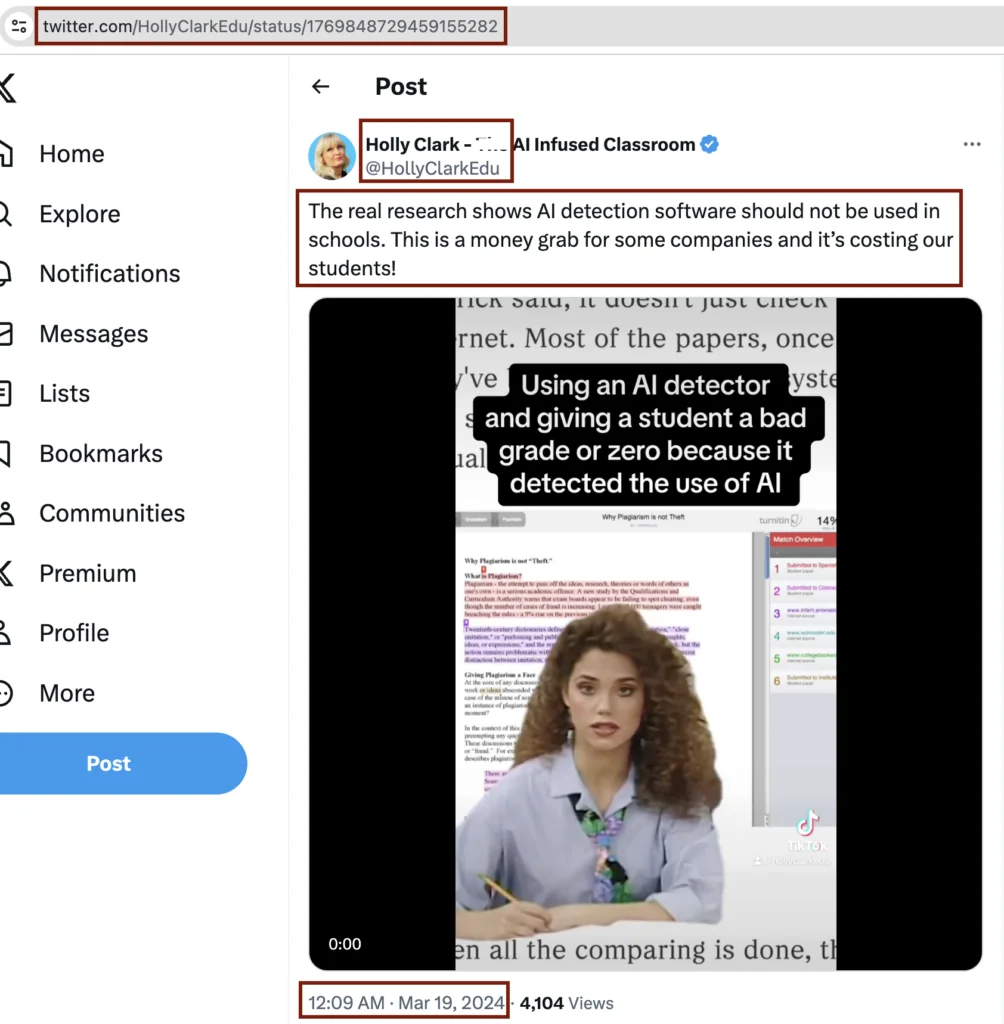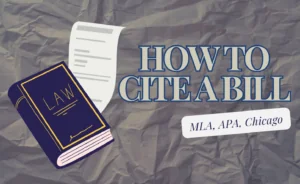Former Twitter, now X, is a social media platform that often becomes the center of heated debates and controversies. Unsurprisingly, it is also widely used by scholars of all fields for sharing their knowledge as well as starting discussions on scientific, philosophical, or life-related topics. It is also a place where researchers can share their findings and show them to a broader audience.

✅ AI Essay Writer ✅ AI Detector ✅ Plagchecker ✅ Paraphraser
✅ Summarizer ✅ Citation Generator
This is exactly the reason you wouldn’t want to miss out on turning to X as one of your research sources. Who knows, maybe you will find loads of necessary information to finally start or finish your paper. In case you decide to use tweets (messages shared on platform X) and include them in your academic articles, you need to be prepared to cite them properly. Below we will show you how to cite tweets and format these citations correctly.
Citing a Tweet: Guide for Quick Referencing
Before starting to build your citations, you need to know the key details of the tweet to include them in your reference. Essential information usually includes the tweet author’s username, the tweet’s full text, the posting date, and a direct link to the tweet. In some cases, you may also need to include the tweet author’s real name and access date (as required for many digital sources). So before jumping straight to formatting your reference list, check out the citation rules and examples for various formatting styles we included below.
Adding a Tweet in APA
Key Rules:
- Author’s Name: Start with the last name and initials.
- Username: Include the author’s Twitter handle in square brackets, preceded by the @ symbol.
- Date Posted: Use the format (Year, Month Day).
- Text of Tweet: Write the text of the tweet in italics. If the tweet exceeds 20 words, include only the first 20 words followed by an ellipsis.
- Bracketed Description: After the tweet text, add [Tweet] in square brackets.
- Source: Write “Twitter.”
- URL: Conclude with the direct URL to the tweet.
Example:
APA Reference Entry: OCEAN C. [@theoceanmaria]. (2024, March 21). 5-Step Email Marketing Strategy For ANY Niche: 1. Audit 2. Research 3. Calendar 4. Campaigns 5. Reporting (Bookmark this) [Tweet]. Twitter. https://twitter.com/theoceanmaria/status/1770848176703947170
APA In-Text Citation: (OCEAN C., 2024)

Remember, the actual tweet may contain emojis or other elements that aren’t easily represented in plain text; in such cases, describe the content in square brackets, for example, [image of a calendar], when necessary.
Building an MLA Citation for a Tweet
For MLA citation of a tweet, the structure should be as shown below.
Key Rules:
- Last Name, First Name: Start with the author’s real name, if known.
- Username: If the username is significantly different from the real name, include it in square brackets (and, if it’s similar – just skip the username)
- Tweet Content: Enclose the entire message of the tweet in quotation marks.
- Platform: After the content, note the platform (Twitter) followed by a comma. Format this in italics.
- Date Posted: Include the date the tweet was posted, formatted as day/month/year, followed by a comma.
- URL: Conclude with the URL of the tweet. If the URL is long, it may be shortened, and the “http://” or “https://” portion is omitted.
Given the format above and the tweet content from your instruction, here’s how you would construct the MLA citation for that tweet:
Example:
Khan, Sadiq. “Tory cuts have consequences. New research shows a clear link between the cost-of-living crisis and crime. We urgently need a national strategy to tackle the complex causes of crime, invest in our broken criminal justice system and support victims.” Twitter, 15 Mar. 2024, twitter.com/SadiqKhan/status/1768574540597059673.
MLA In-Text Citation: (Sadiq)
Citing Tweets in Chicago
We only took a glance at the Chicago formatting rules and we already knew that you would like this referencing style the most. And how can we blame you? To create a citation using this style you only have to enter the author’s first and last name (@twitter handle), the “Twitter post“ itself, Twitter, the date in the Month Day, Year format, the posting Time (may be optional), and finally the URL.
Example:
Clark, Holly (@HollyClarkEdu). “The real research shows AI detection software should not be used in schools. This is a money grab for some companies and it’s costing our students!” Twitter, March 19, 2024, 12:09 AM, https://twitter.com/HollyClarkEdu/status/1769848729459155282.

Note that the rules for formatting here stay the same for footnote citations and bibliography references alike.
How You Would Incorporate Tweets in Different Types of Research
You may wonder “Who on Earth would even think about adding a tweet to their research?” Surely, some of you would think that it is unprofessional and can’t be possibly accepted by the scientific community. Yet, here we are. Telling you about how to properly cite tweets in your research. The thing is, adding tweets to research provides a unique opportunity to capture real-time public opinions and trends.
In qualitative research, for example, tweets can serve as valuable primary sources, as they offer insights into people’s perceptions, emotions, and reactions to events or topics. Scholars can analyze tweet content, hashtags, and user interactions to identify themes, patterns, and sentiments that contribute to a deeper understanding of the subject matter. Unsurprisingly, this would be especially helpful for the fields of psychology, sociology, and social work.
In quantitative research, tweets can with equal success be used as data points in large-scale analyses. Researchers can quantify public opinion, track changes over time, and identify correlations with other variables by implementing computational methods such as natural language processing and sentiment analysis. Hence, tweets can be particularly useful in studies focusing on social media’s impact, public health monitoring, and political sentiment analysis (don’t you think they go through Twitter (now X) before presidential elections, for example?).
Still, the weight of tweets as scientific sources compared to traditional ones (books, articles, etc) depends on the research context and objectives. Of course, for studies where social media dynamics and online behavior are central, tweets may carry significant weight. On the contrary, fields that rely heavily on empirical data or historical analysis, might not consider tweets supplementary sources. So, before you decide to add any type of tweet to your list of references, take a critical look at the reliability and relevance of this information in your specific research context. Consider factors such as the author’s credibility, the tweet’s context, and potential biases in the data, and you will be good.
Legal and Ethical Considerations to Keep in Mind When Citing Tweets
Tweets are public content. So, it’s highly unlikely that you would face any types of problems for using them in your research. Nonetheless, you can’t be too sure, right? So let’s quickly look at the possible considerations you might want to take from both ethical and legal sides (nobody wants to pay a huge fine over this, especially not with those student loans).
Ethically speaking, researchers must respect the privacy and dignity of individuals whose tweets are cited. Tweets containing personal opinions or sensitive content should be treated with caution so that the context is accurately represented and individuals are not unfairly exposed or misrepresented. In cases where tweets are part of private conversations or involve vulnerable populations, you better ask for consent from the author. At least just in case, to be in the clear.
From a legal standpoint, citing tweets generally falls under fair use, especially when implemented in educational or research purposes. Plus, tweets are public and can be accessed by anyone, so it’s not like you can break some intellectual rights laws by using them. Copyright laws may apply to certain elements within tweets, though, such as images or videos. You better check these elements to either use them with permission or make sure that they are legally permissible under fair use exemptions. Additionally, privacy laws may come into play, particularly when citing tweets that come from private accounts. In such cases, you should anonymize the information or seek consent from the tweet’s author.
FAQ
Follow us on Reddit for more insights and updates.





Comments (0)
Welcome to A*Help comments!
We’re all about debate and discussion at A*Help.
We value the diverse opinions of users, so you may find points of view that you don’t agree with. And that’s cool. However, there are certain things we’re not OK with: attempts to manipulate our data in any way, for example, or the posting of discriminative, offensive, hateful, or disparaging material.